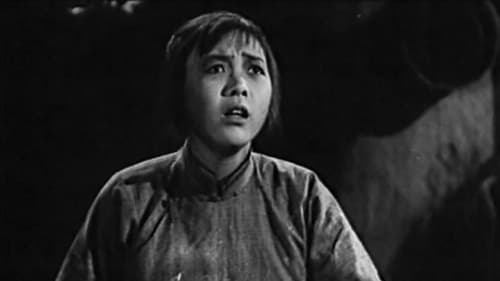Qian Jiang
Birth : 1919-01-01, Beijing, China
Death : 2001-01-01

Writer
The adventure in Nanjing of the legendary CCP undercover Qian Zhuangfei.

Director
The adventure in Nanjing of the legendary CCP undercover Qian Zhuangfei.

Director
Feature film produced by Beijing Film Studio in 1980, directed by Qian Jiang and Zhao Yuan. During the period of the "Gang of Four," Chen Hao -- a veteran cadre of a certain unit of the People's Liberation Army -- is brutally persecuted. Chen's three biological sons are also tortured physically and mentally. Defending the honor of a soldier, Chen is beaten into disability. After the collapse of the "Gang of Four," Chen returns to his post. Two of his children see their love lives fall apart, due to their father's precarious status, while the third child pursues a decadent lifestyle to dangerous ends.

Writer
During the Japanese occupation, a group of communists are publishing a newspaper

Director
During the Japanese occupation, a group of communists are publishing a newspaper

Director of Photography
With the fishermen's life on the southeastern coast in the early 1960s as its background, the film depicts a group of militia women who work both as fisher women and fighters defending their homes and the motherland.

Director of Photography
Toward the end of the Cultural Revolution, the ballet Red Detachment of Women was adapted to a Beijing opera.

Director of Photography
A revolutionary model opera that focuses on ferreting out class enemies: those who did not belong the hallowed ranks of the gongnongbing 工农兵, the workers-peasants-soldiers.

Director of Photography
Adaptation of a lesser known to Western world, yet wildly popular Peking Opera developed during the Cultural Revolution under the leadership of Jiang Qing.

Director of Photography
Taking Tiger Mountain was the very first model film produced during the Chinese Cultural Revolution (1966-1976). Set during the civil war in 1946, it follows a detachment of the People's Liberation Army in Mandchuria as they are fighting a group of bandits hiding in the mountains. Based on a novel from the 50s, Taking Tiger Mountain was first a revolutionary opera before being made into film by director Xie Tieli.

Director of Photography
Revolutionary Chinese opera in six acts depicting the struggle between Communist guerrillas and a KMT landlord for control of a village.

Director of Photography
At the age of 16 Zhou Lian, who lost her parents at the age of two and was raised by a stepmother, marries Jiang Mei, a progressive young man from Changsha No. 1 Normal School. Jiang Meiqing has also lost both of his parents. The couple has two sons, Liqun, Xiaoqing and daughter Xiaolian. The film follows the family through turbulent times from 1924 to 1930.

Director of Photography
Financial and political pressures bankrupt a Chinese store owner.

Director of Photography
In a mountain hamlet in eastern China, a poor woman faces trial after trial. Sold into marriage as a child, she is left a young widow and enslaved by her mother-in-law, who sells her to a poor peasant. Her second marriage turns out to be happy until fate takes away her husband and son. Now seen as a bearer of bad luck, she becomes a social outcast.

Director of Photography
Yang Bailao, a tenant farmer, lives with his daughter Xi'er. The despotic landlord, Huang Shiren, attempts to forcibly take Xi'er for himself. On the eve of the Chinese Spring Festival, Huang forces Yang to sell his daughter as repayment of the debt Yang owes him.

Director of Photography
Women play a heroic role in the Volunteer Army fighting the Japanese in the puppet state of Manchukuo.









